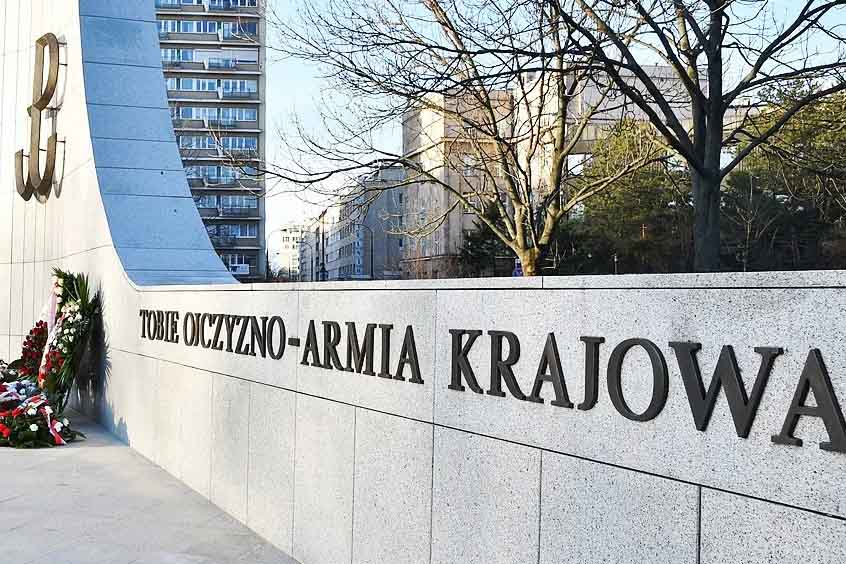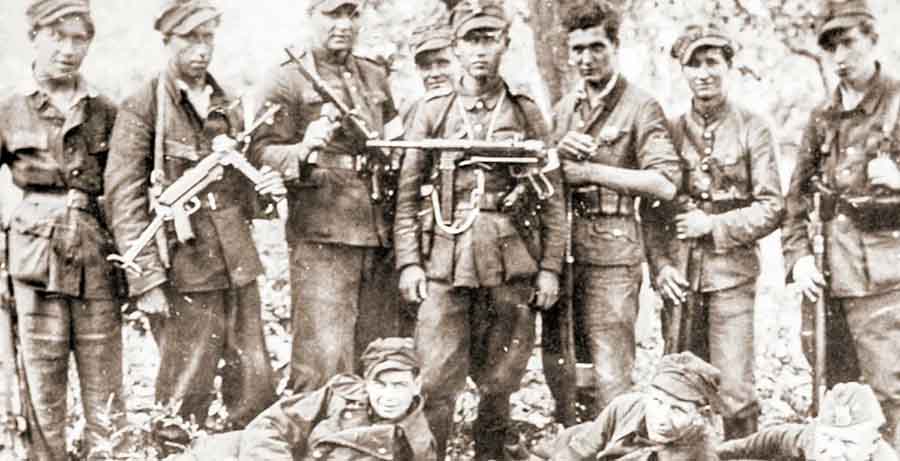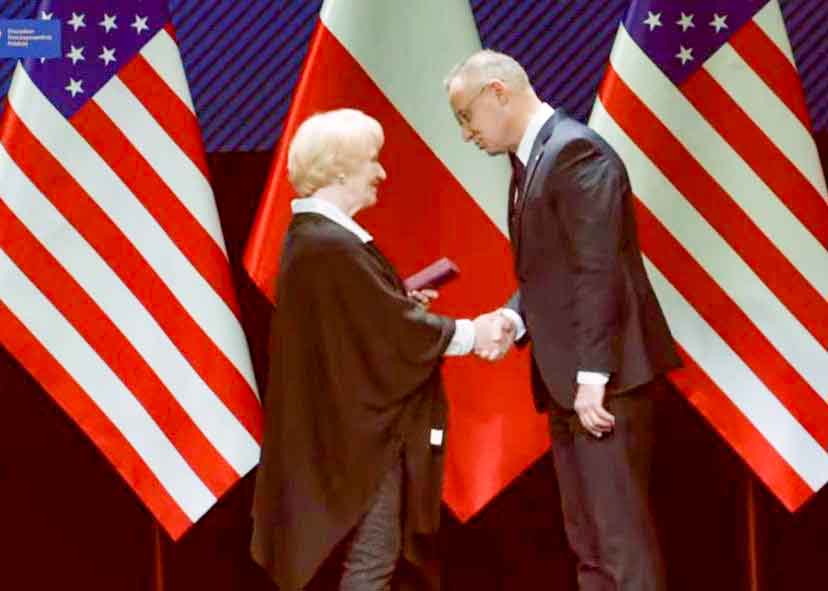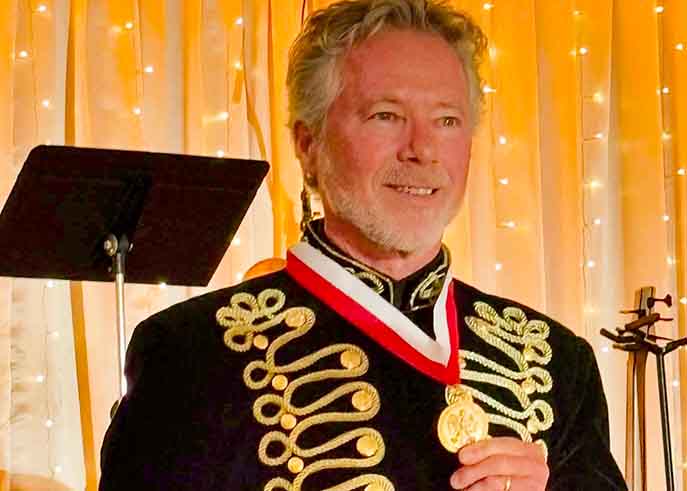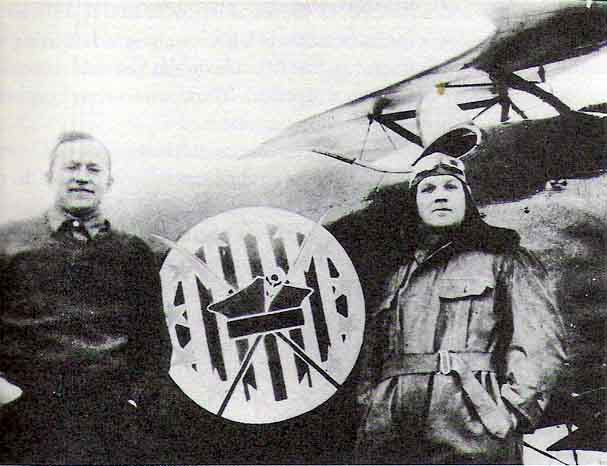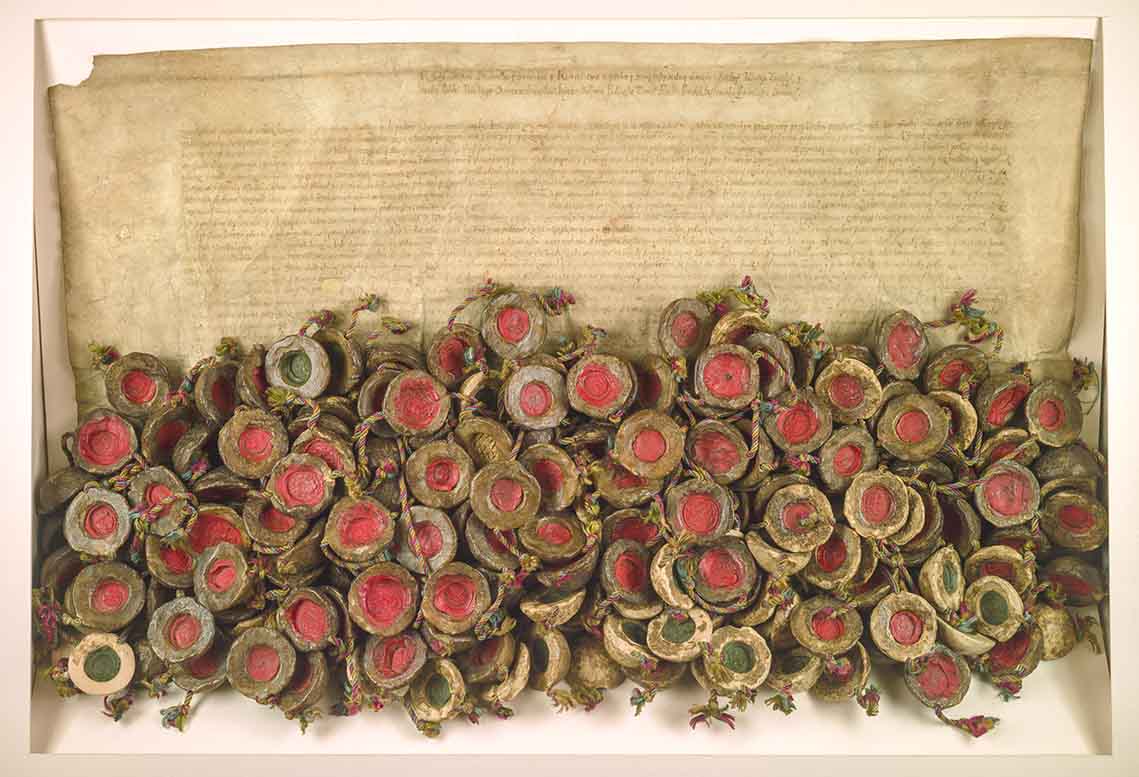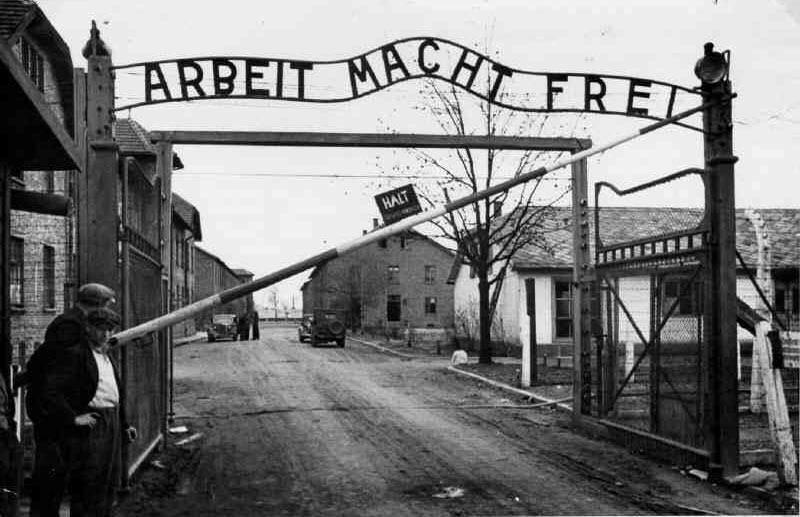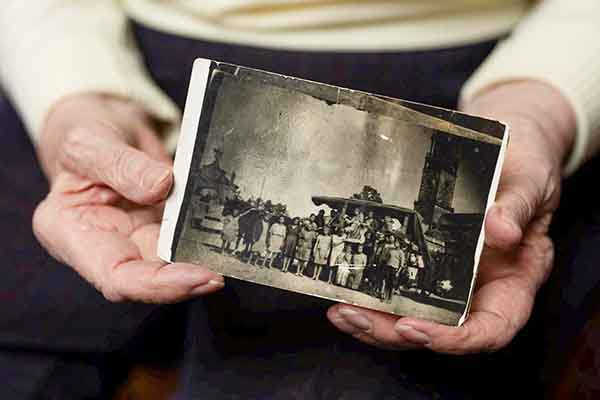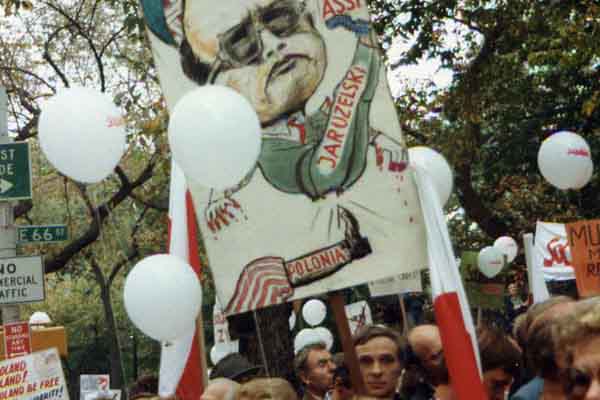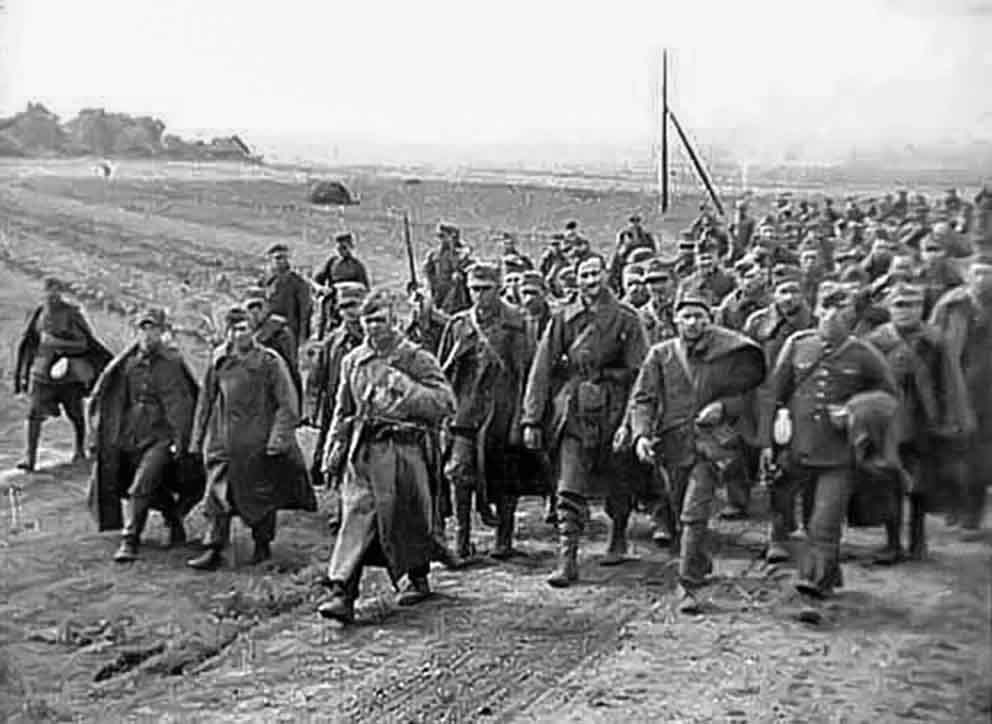The tragedy of Poland, and of the Home Army generation, was that the Republic of Poland, attacked by two totalitarian powers bound by an agreement – Germany and the Soviet Union – did not regain independence after the end of World War II.
Read more... Reading time 10 min.Under the yoke of brutal occupation, Poles managed to create the Home Army – a well-organised armed force that served the entire free world.
Read more... Reading time 6 min.Editor Katarzyna Murawska was awarded the Knight's Cross of the Order of Merit of the Republic of Poland by President Andrzej Duda for her outstanding services to the Polish diaspora in the USA and the promotion of Polish culture. The awards ceremony took place on March 2, 2025 at the Copernicus Center in Chicago.
Read more... Reading time 4 min.Marek Probosz received the Gold Medal for promoting Polish culture and Native American traditions in the USA. The distinction was awarded by the American Institute of Polish Culture in Miami. The ceremony took place on February 1, 2025 during the Polonaise Ball at the Eden Roc Hotel.
Read more... Reading time 12 min.Merian C. Cooper, known as the co-creator of the classic film "King Kong", also had a fascinating past as a pilot fighting for Polish independence. In 1919, driven by the desire to repay the "debt of honor" for Casimir Pulaski's help in the American War of Independence, Cooper organized the Kościuszko Squadron – a unit of American pilots supporting Poles in the war against the Bolsheviks. His extraordinary fate, from escaping Soviet captivity to later successes in Hollywood, make his biography worth knowing.
Read more... Reading time 10 min.The Warsaw Confederation of 1573 was a groundbreaking legal act that made the Polish-Lithuanian Commonwealth a stronghold of religious tolerance in Europe. At a time when the continent was engulfed by religious wars, Poland established the principle of religious freedom for its nobility, guaranteeing peace and stability. This document, adopted despite the opposition of the church hierarchy, became the foundation of political compromise and a symbol of social maturity.
Read more... Reading time 3 min.Pilecki – today referred to as "the man who volunteered for Auschwitz" – remained a forgotten figure for years. Until 1989, all information related to the life and achievements of Witold Pilecki was subject to censorship in the Polish People's Republic.
Read more... Reading time 6 min.Eighty years after the last prisoners of Auschwitz were released, the last generation of Survivors is inexorably passing away. We must therefore be the advocates of the victims: historians, educators, journalists and all people of good will.
Read more... Reading time 5 min.Some people believe that there will be no Russian Federation in a few years. According to this concept, no matter who sits in the White House, it will not stop the collapse of the rotten empire and its ossified foundations.
Read more... Reading time 12 min.Recently, the world of music was electrified by the discovery of a previously unknown waltz by Fryderyk Chopin. A previously unknown waltz by Chopin was found in a New York museum, as reported by the "New York Times."
Read more... Reading time 7 min.The conference is open to anyone interested in the subject. Discussion panels and meetings will be open to those who want to learn more about those times and their activities, and there will also be an opportunity to express their own opinions.
Read more... Reading time 5 min.Wojciech Materski
Although Russia has officially acknowledged the perpetration of the Katyn massacre, this truth is virtually absent from Russian historiography today. For it does not fit into the myth of the great victory of the war, any more than the Hitler-Stalin pact of 1939, the mass deportations, the enslavement of the Baltic republics, or the colossal scale of the Red Army's marauding in the final phase of the Second World War.
Read more...


